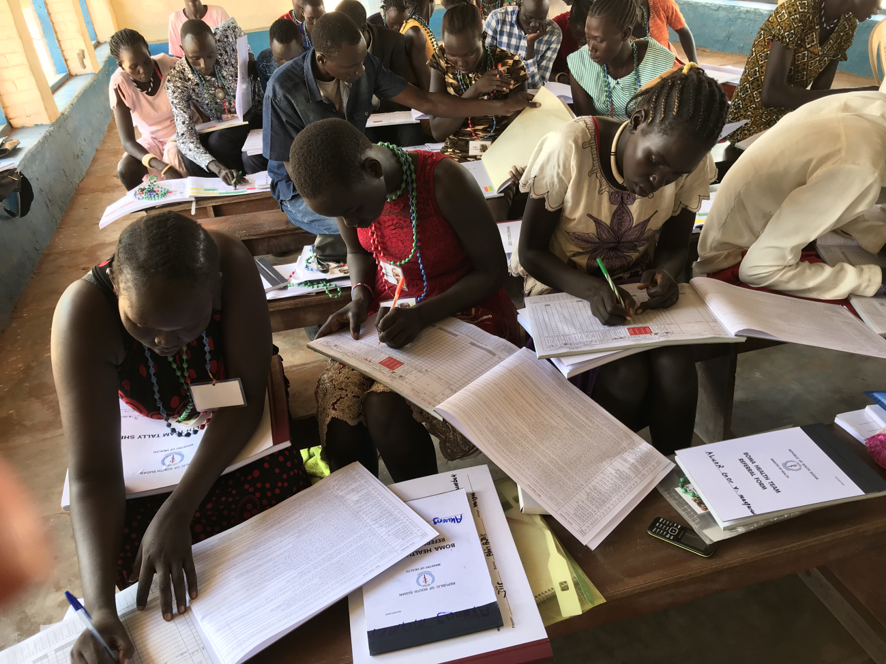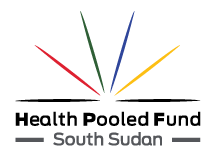FORMING AND TRAINING BOMA HEALTH COMMITTEES TO MANAGE HEALTH FACILITIES AND CARE WORKERS
Aulich Boma has 11 Boma Health Workers (BHWs). To aid in coordination and oversight, a Boma health committee was formed in October 2019 and received training supported by Health Pooled Fund (HPF), the Ministry of Health and Malaria Consortium. The Boma Health Committee is comprised of nine opinion leaders and vulnerable groups from the Boma and is chaired by the Boma chief. It has one woman and eight men. Two of the committee members represent the disabled in the community.

Since its inception the committee has held several meetings with the community to explain their role. Dut Baak Lual, the chairman, said: “We held a meeting with community members and Boma Health Workers (BHWs) under Aulic Payam to explain our roles so that we work
in an orderly manner.”
The committee also conducted a planning meeting with the BHWs in order to map how they were going to work
in their communities. Deng Dut Bol, the deputy chairman said: “Besides the planned meetings every month we also come together to solve any challenges that BHWs will be facing on an adhoc basis.”
The committee has managed to supervise the BHWs and ensure that they continue providing services to the communities. This support has seen all BHWs providing reports as well as getting their supplies in time from the
respective health facilities to prevent a gap in treatments at community level. Committee member Yel Piol Deng explained: “Our role is to encourage BHWs to submit reports on time as required by Malaria Consortium.”
The committee has also ensured that Boma Health Initiative drugs received are used for the intended purpose without them leaking to the market. Dut Baak Lual said: “My team members, local authority and security personnel are working hard to make sure that the health facilities and BHI services are given to the target vulnerable group as stipulated by Malaria Consortium. The services are not for sale.”
Where there is a suspicion of leakages the committee investigates before informing Malaria Consortium. The BHWs are also involved in community sensitisation meetings on child health, nutrition and family planning
disseminating key health messages in the community.
Maria Amou Aguer said: “We encourage the communities – especially women – to support the work of the BHWs and comply with the advice given during treatments and community health sensitisation meetings.”
The BHWs have managed to build a cordial working relationship with the health facility. The Aulich health facility prioritises very sick children who are referred by the BHWs. The health facilities allows the committee to check
on usage of BHI drugs in order to maintain accountability.
The committee also addresses any challenges the health facility may be facing, including shortages of anti-malaria medication. The committee raises these shortages with Malaria Consortium as they do not have capacity to solve
the problem at community level. The committee also has visibility challenges and asked the programme to buy T-shirts and ID badges for them so that they can be easily identified. Dut Baak Lual and other members identified
some equipment that would strengthen the committee’s work, such as notebooks for capturing minutes, hand soaps as a preventive measure for COVID-19, and raincoats and gumboots.
